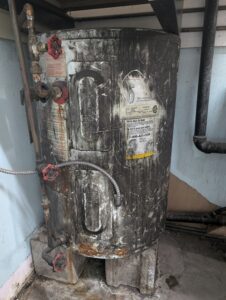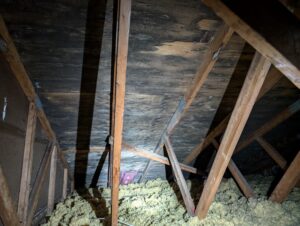Mold is a common problem in many homes, but it can have serious health consequences if not addressed properly. In this blog post, we’ll discuss the causes, signs, and health risks associated with mold growth. We’ll also provide tips for preventing mold and what to do if you discover a mold problem in your home.
What is Mold?
Mold is a type of fungus that can grow in damp, humid conditions. It can be found in various colors, including black, white, green, and blue. While some molds are harmless, others can produce toxins that can cause health problems, especially for people with allergies or respiratory issues.


Common Causes of Mold Growth
Mold thrives in environments with high humidity and moisture. Common causes of mold growth in homes include:
- Water leaks: Roof leaks, pipe leaks, or basement flooding
- Poor ventilation: Inadequate airflow can trap moisture
- Condensation: High humidity can lead to condensation on cold surfaces
- Excessive humidity: Indoor humidity levels should be kept between 30% and 50%
Health Risks Associated with Mold
Exposure to mold can cause various health problems, including:
- Allergic reactions: Sneezing, runny nose, itchy eyes, and congestion
- Respiratory problems: Coughing, wheezing, and difficulty breathing
- Chronic fatigue: Persistent tiredness
- Headaches
- Skin irritation
Signs of Mold Growth
Here are some common signs of mold growth in homes:
- Musty odor: A strong, unpleasant smell
- Visible mold: Dark spots or patches on walls, ceilings, or floors
- Water stains: Dark spots or streaks on walls or ceilings
- Peeling paint: Paint that is peeling or blistering
- Respiratory problems: Symptoms such as coughing, wheezing, or difficulty breathing
Preventing Mold Growth
To prevent mold growth in your home, take the following steps:
- Address water leaks promptly: Repair leaks as soon as possible.
- Improve ventilation: Ensure proper ventilation in all areas of your home.
- Reduce humidity: Use dehumidifiers to control humidity levels.
- Clean up spills and leaks immediately: Wipe up spills and leaks promptly to prevent mold growth.
- Inspect your home regularly: Check for signs of mold growth, especially in damp areas.
Professional Mold Remediation
If you suspect that you have a mold problem in your home, it’s important to consult with a professional mold remediation specialist. They can assess the extent of the problem and recommend appropriate treatment methods.
Popular Reference Links for Mold in Homes
- General Information Health Canada: https://www.canada.ca/en/health-canada/services/publications/healthy-living/infographic-mould.html
- U.S. Environmental Protection Agency (EPA): https://www.epa.gov/mold
A professional home inspector can help identify potential mold issues during a home inspection and recommend further action.


